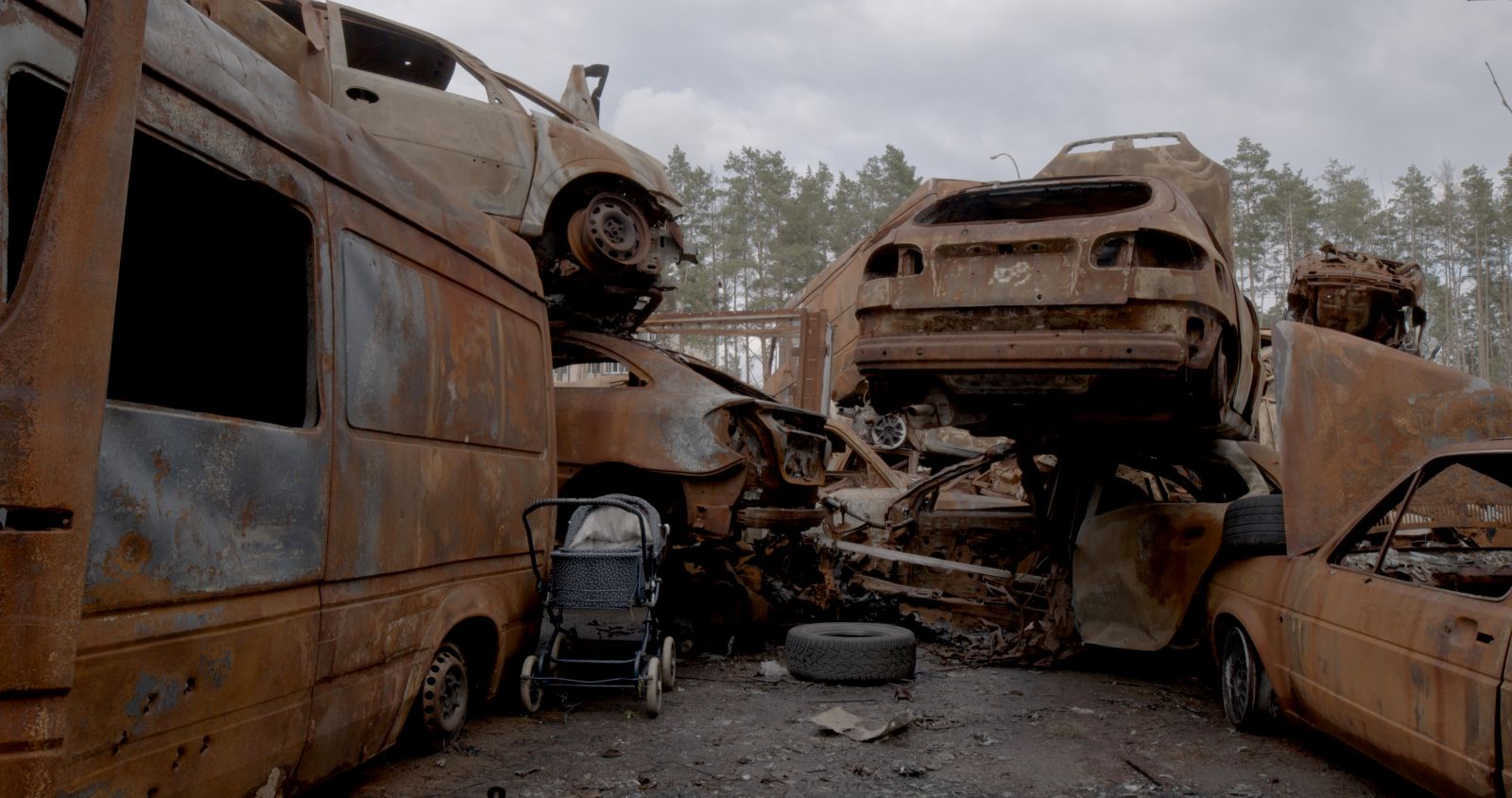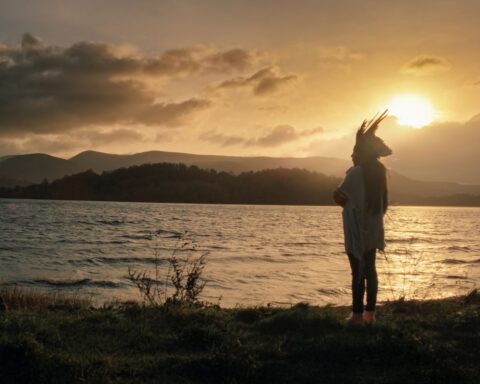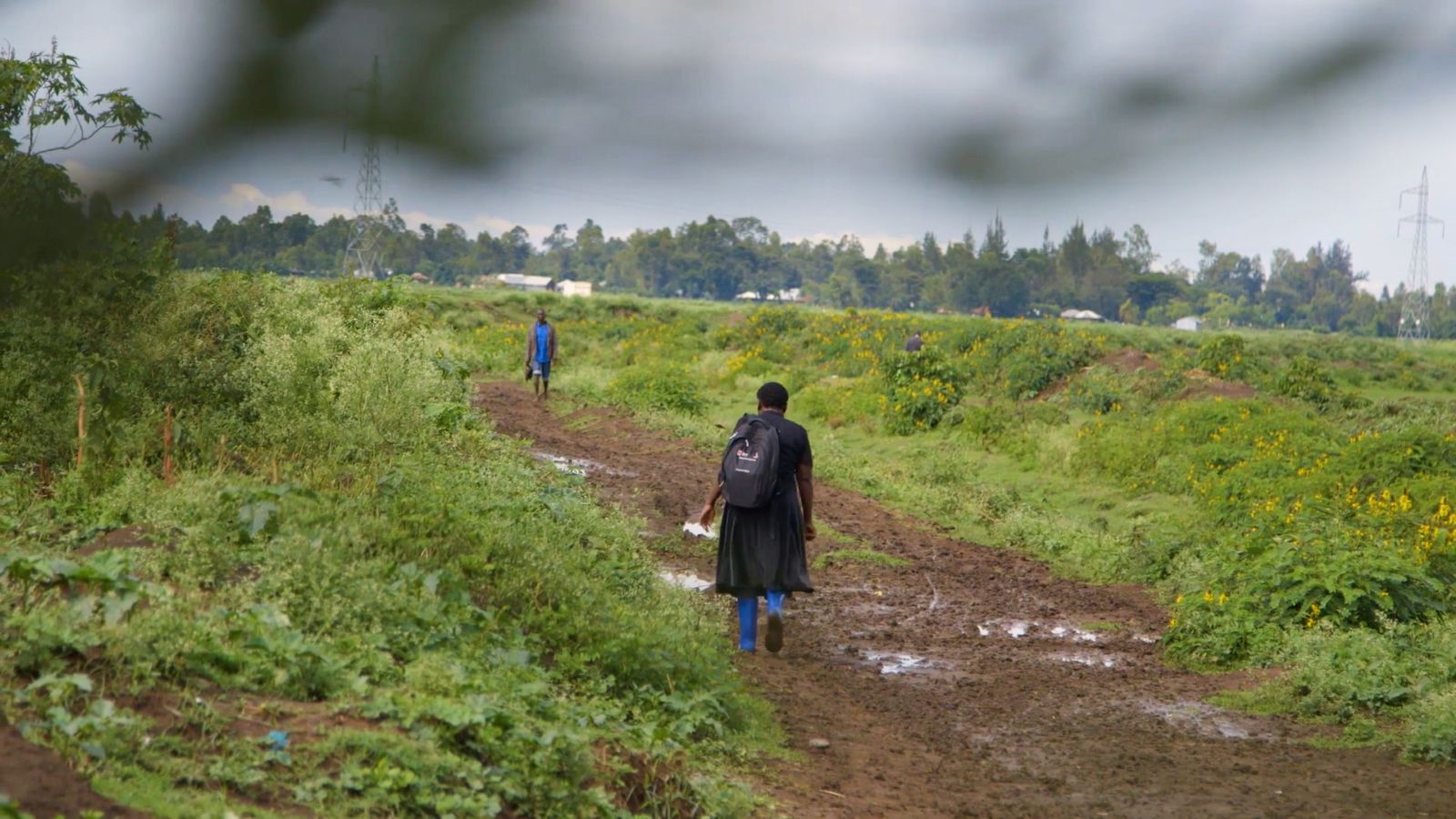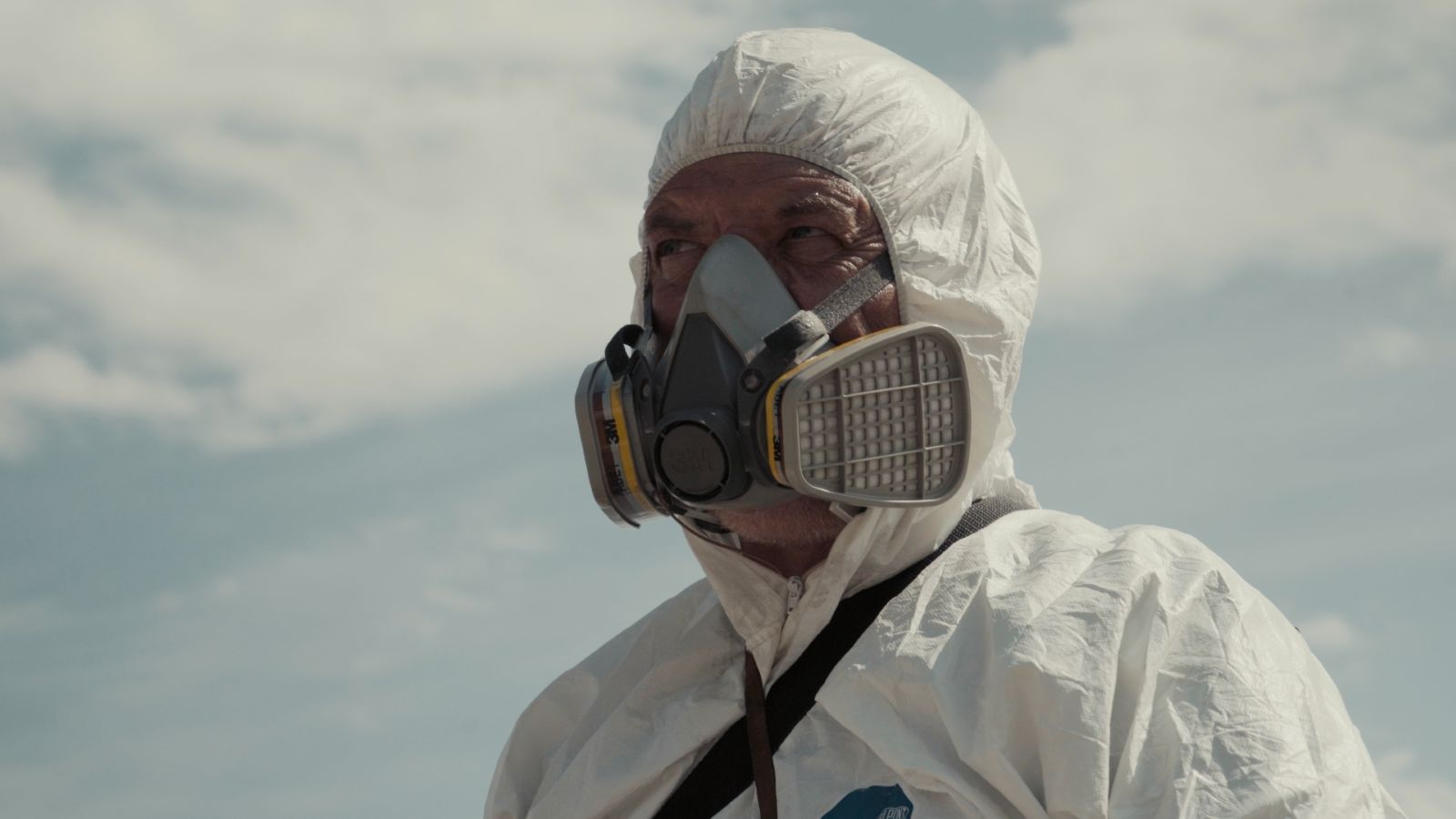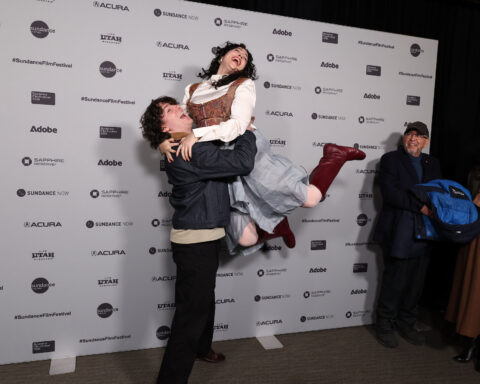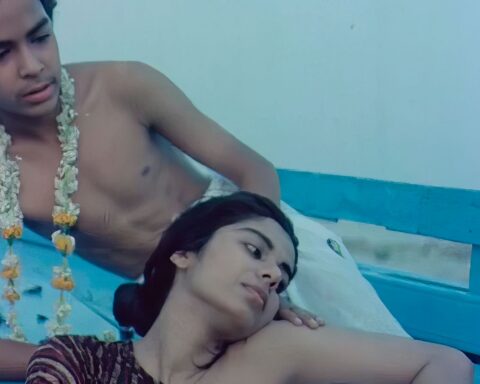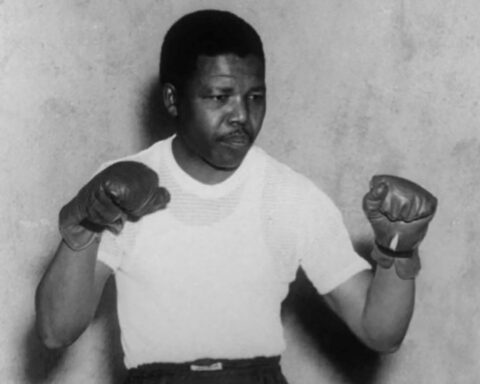The Longer You Bleed
(Germany/Ukraine, 73 min.)
Dir. Ewan Waddell
Programme: Made in Exile (World premiere)
Nothing slaps quite as hard as an Instagram Reel that sets one’s personal tragedies to a poppy techno beat. Well, it slaps to the face, that is.
Ukrainian refugee Liubov Dyvak gets such a rude awakening when she taps a highlight video of her Instagram activity. The Reel collates her Instagram posts, stories, and videos with the most engagement. It sets them to an upbeat party anthem to celebrate her social media success. There’s just one problem, though, and one that can’t make Liubov laugh and cringe with equal measure: Her photos and videos share evidence of the tragedy in Ukraine.
These images convey bombed-out buildings, dead bodies, and colossal devastation of her homeland. The algorithm, however, collates everything with neither taste nor filter. Evidence of Ukraine’s tragedy flows on the Reel to the bop, “It’s a good-good time / It’s a good-good-time.” It’s as if Liubov and company should put their drinks up in celebration.
As Liubov shares with director, and eventual partner, Berlin-based filmmaker Ewan Waddell, Russia’s invasion of Ukraine marks perhaps the first war to unfold in real time over social media. Processing the tragedy, and the sheer scale of immediate and graphic images, proves traumatic. The Longer You Bleed offers a fascinating study of the role of social media amid global displacement. This intriguing angle marks the film as one of the better — if tougher — portraits of the war in Ukraine as it fully considers not simply the immediate horror, but also the invisible trauma that people carry with them as they flee home.
Liubov and other Ukrainians share how staying connected through social networks like Instagram and Telegram keeps them informed. They can trace reliable sources amid a sea of misinformation. They can amplify news with hopes of drawing attention to their people’s plight. But they can also be totally overwhelmed by the endless cycle of trauma and pain.
Waddell observes as Liubov and other Ukrainians deal with a life of endless doomscrolling. They pay witness to war from safer zones, but can’t help but be glued to their phones in search of updates. They can scan aerial footage of battlefields to observe the lifeless bodies of Ukrainian soldiers and Russian militants alike. Viral videos feature mothers grieving their dead children, while harrowing footage captures evidence of shelling and bombing.
Liubov admits that being constantly glued to violence and trauma leads to desensitization. One survivor admits that she hadn’t seen her brother for nearly two years before he was killed. His death and burial marks no before and after in her mind. She feels the same.
Waddell experiences this numbing effect, too. He visits Ukraine with Liubov as their relationship progresses, but seeing the devastation firsthand invites little difference in how he relates to the tragedy. It’s all the same. Been there, done that.
The Longer You Bleed invites audiences to experience this relatively new psychology warped and perverted by social media. Waddell inundates viewers with harrowing videos from different social networks. There’s trauma, bloodshed, death, carnage, mayhem, and misery in spades. It’s a traumatic film to experience. Even with careful blurring, the images create sensory overload. But after a while, it all starts to look the same. Images differentiate themselves only through their specificity of composition, depending upon a photography’s eye or perhaps when the natural light hits the shelled remnants of a building just right.
Equally concerning is the algorithm’s ability to censor material. Zuck’s Meta platforms selectively suppress news about the Ukrainians’ plight. Meanwhile, a cyber formula chooses which images are too graphic for a user to see, blurring or hiding compelling evidence of war crimes. AI and tools like Photoshop can erase them altogether. The challenge of keeping pace with censors, but having to use their tools to share news, leaves Liubov and others understandably cynical. Their lives merely offer clickbait when convenient to Big Tech.
At the same time, The Longer You Bleed illustrates how social media proves a lifeline. Memes and incongruous posts let Ukrainians laugh in the face of heartache. Jokes offer reminders that they’re alive. Meanwhile, Liubov and others reflect how laughing at the Russians, and making light of their own misery, offers a survival mechanism. They won’t let the onslaught of tragedy break them.
One particularly humorous moment captures the complexity of living with social media during wartime. Ukrainians Herman and Maryna tell how they learned of immediate danger thanks to posts on their feed. They recall bolting to help neighbours, but also to warn Maryna’s mother that danger is at her doorstep. With a bemused, surreal laugh, they share how Maryna’s mom welcomed them into her home and served them tea and cake with her best cups and saucers. Even though neighbours were literally dying by violence next door, they note, they ate the cake—which they sincerely enjoyed. What else is there to do but eat cake when death by gunfire or starvation is the alternative? Marie Antoinette could never, but where there’s a meme, there’s a way.
The Longer You Bleed premiered at Hot Docs 2025.
Get more coverage from this year’s festival here.




